EFFECTS OF SINGLE PARENTING ON THE ACADEMIC PERFORMANCE OF STUDENTS IN JSS CLASSES
₦10,000.00 ₦3,000.00
ABSTRACT
This study examined the impact of effects of single parenting on the academic performance of students in JSS classes. The study used questionnaire as instrument to collect responses from respondents. Students were used as respondents for this study. Sixty (60) students were sampled and simple percentage was used to analyze the findings. The findings of the respondents shows that most of the students are not staying with their two parents. As a result, many of the students do lack parental love because their parents are not staying together but many of them. Based on the information generated from students after gathering data analysis, the following recommendations were looked into:
- The research on the effects of single parenting on the academic performance of students in JSS classes will help in encouraging students from single parenting that they can as well make it in life even more than other children from two parenting home.
- Government should support schools by providing financial assistance and gratuity funds for these children from single parenting home.
Description
CHAPTER ONE
INTRODUCTION
1.1 Background of the study
The family or home is an integral part of the society which is a sub-system of the social structure. It is an axiom that good homes breed a productive nation. This is the brain-child of why, every society aspires for development. Everyone has had someone who nurtured them in their childhood and who they called “family”. No man existed by himself. Everyone comes from a family. Only few things are more universal than the family. The family is the only channel through which there can be continuity of life of human societies. Whether single or married, all parents leave long-lasting impressions on their children’s life and the single parents are not excluded from the role. However, death, divorce, or whatever may be the cause of this singularity will likely leave deep impressions or impact on the emerging personality of the child. What actually matters is the way the single parent respond to the herculean tasks of single-parenting (Omolewa, 2020).
There is no marriage without its challenges. When the challenges degenerate to a particular level, the spouses due to repeating frustration may decide to quit the union and live separately. On this, many cultures and religions see divorce as last option in settling marital conflicts, though some still believed that marital relationship be maintained, no matter the frustration because it is for better for worse. This reason makes it importance to look into the meaning of divorce and single parenting. Marital unhappiness is one of the major factors that predispose marital instability. It is assumed that marital conflict is inevitable in any society as long as husband and wife are different individuals and their actions are important to one another. The issues of single parenting which is a result of divorce is a mechanism for dealing with the action of the deviant of the spouse decision which inevitably caused by marriage because without marriage there would be no divorce and without divorce there may not be single parenting.
However, whichever manner the single parent has dealt with the parenting challenges, there are deep effects on the child’s character, individuality, and academic performance as compared to the children whose parents live together. Being a child to a single parent is a very complex situation. Children look up to their parents for the gratification of their first three psychological needs, according to Abraham Maslow’s hierarchy of needs, that is, the Physiological needs (food, water, air, shelter), Safety needs (security), and Love and affection needs. If the parents are confident and emotionally stable, their children will feel secure and confident. The sense of belonging to a single parent has a disturbing effect on the child’s personality. Although, the norms and mentality of many African societies have changed, many children with single parents are often called bastards, that is if they have unmarried parents. As it is a social taboo, it always haunts the child whose mother was never married to his/her father, or when the father refused to recognize or accept these children as his. They are singled out by others at school and playgrounds and made fun of. As a result of which they become reluctant to attend school and socialize. These are parts of the difficulties that children with single parents have to pass through.
The child is the focal point, and without the child, the concept “parent” is invalid. In the same vein, writer, social commentators and observer of family upbringing in the society assumed the following ways in which children display different behavioural patterns depending on the type of household they come from. Many believe that materialism and compulsive consumption behaviour in children have been found to be higher in single-parent households than in dual-parent households. A child from homes where both the father and mother are present is assumed to be well taken care of and socialize in the best way possible. This is due to the fact that the process of socialization depends on both parents playing complementary roles in bringing up the child.
1.2 Statement of the Problem
Without doubt, single parenting is existing here in Nigeria. In every community, there are children of single parents. These children are facing different challenges on their academic performance. These challenges are assumed to be multifaceted because the normal societal role is that a total child is expected to be raised by both father and mother. Imagine the parent struggling to meet the end need of his child by working from 8am till 7pm, how will such parent has time for the assignment of his/her child, when will such parent has time for visiting the child in school, how will such a parent has time to monitor either the child is attending extra mural class and how will such a parent know either the child is revising his/her note? These are the questions bothering the mind of the researchers. On this, the researchers decided to carry out a study on the effects of single parenting on the academic performance of students in junior secondary classes.
1.3 Purpose of the Study
The main purpose of the study is to ascertain the effects of single parenting on the academic performance of students in JSS. A case study of selected secondary school; but for the successful completion of the study, the researcher intends to achieve the following sub-objectives;
(i) To investigate the effect of single parenting on the students in junior secondary schools
- ii) To investigate the effect of single parenting on the academic performance of students in junior secondary schools.
iii) To probe the academic performance of students from single parents.
1.4 Research Question
For the successful completion of the study, the following research questions were formulated by the researcher;
- i) What are the effects of single parenting on the students in junior secondary schools?
- ii) What are the effects of single parenting on the academic performance of students in junior secondary schools?
iii) To what extent does single parenting affect the academic performance of students in junior secondary schools?
1.5 Significance of the Study
The study on the effects of single parenting on the academic performance of students in junior secondary classes is significant on:
- Children: The findings of this study will help to educate the children from single parents about the need for them to accept their fate and focus their education even if their single parents have no time to supervise their academic progress.
- Government: The findings of this study will help the government to know the effects of single parenting on children academic performance and services that should be provided to help these children in solving their problems.
iii. Public and Private Individuals: The study will be of immense benefit to both the public and private individuals who are greatly convinced about the rate of increase single parenting in Nigeria as a whole.
- School Authorities: The findings also would be of great help to the school authorities to know how they can render assistance to the affected children of single parenting.
1.6 Scope and Limitation of the Study
The scope of the study covers the effects of single parenting on the academic performance of junior secondary school students in Afijio Local Government Area of Oyo state. It is assured that time and irregular strike action may affect the study.
1.7 Definition Of Terms
Parents: In this study, a parent is the biological care-giver of a child. It may be the father or the mother.
Single parenting: This refers to a situation when one out of two people who are responsible for the nurturing and rearing of a child is not available, and the work meant for two people is now been carried out by only one person.
Effects: In this study, it refers to the consequence of single parenting on the academic performance of the junior secondary school students
Academic Performance: This means the success or failure of a child in his or her academic pursuit
Student: This refers to children in junior or senior secondary school who are learning


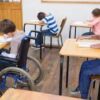
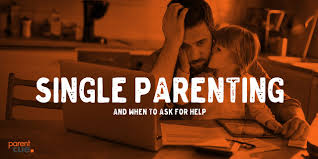
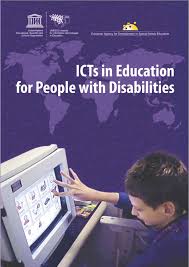
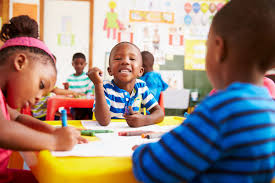
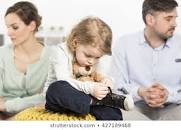
Reviews
There are no reviews yet.